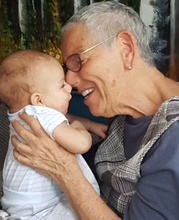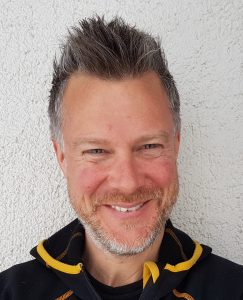My Path of Heart: Using Processwork to Understand and Nourish my Polyamorous Relationship

By Rami Henrich
Believing in My Path of Heart
One of the greatest gifts Processwork has given me is the ability to accept my wild, adventurous, intense, and outrageous nature with greater ease. I had a tendency to pathologize my curiosity, my intensity, my sexual explorations, my counter-culture relationship, and my general out-of- the-boxness, but Processwork helped me value my own inner diversity. Processwork suggests what you doubt about yourself or what you think is wrong with you may in fact be the seed of something beautiful and useful that wants to unfold and be lived more completely. For me, the idea that my family’s polyamorous relationship (35+ years now!) might somehow be perfect and hold exactly what is needed in the world was a radical and deeply relieving perspective. This cleared the way for me to embrace my path of heart more fully.
Marginalization and Internalized Oppression
Cindy, Tom, and I have always been aware that our non-monogamous relationship meant we were outside the mainstream, but Processwork provided me with the additional framing of marginalization, which has helped tremendously. To realize that non-mainstream people are marginalized by the dominant culture in so many ways that it lead to internalized oppression confirmed my experience and provided some relief.
It is often difficult to recognize internalized oppression because it can take on the form of an inner critic, a relationship argument, or some other personal manifestation. Processwork helped me de-personalize it and wake up to the ways in which our family’s difficulties and feelings of self-doubt were not entirely our own.
Our Relationship Is a Worldwork Issue
The Processwork concept of Worldwork shows how world problems can be felt and processed by individuals through relationships and manifest in group dynamics.
Realizing my marginalized voice and experience were not just tolerated but actually needed in the world was yet another breakthrough moment for me. The mainstream may also suffer from a rigid adherence to monogamy; both the freedoms and difficulties of a polyamorous relationship may be something our culture actually needs. Without suggesting monogamy is wrong, this new perspective opened me to new questions about what polyamory means for the broader culture. Do people in monogamous relationships need more awareness of an expansive capacity for love? Might they need more attention to their own inner diversity, to the myriad needs and interests they have that might not be wholly satisfied by one partner?
Viewing our relationship as a Worldwork issue helped me value our path of heart that much more. It supported and encouraged me to come out, to express myself, and to step into yet another worldwork role: that of a therapist and facilitator to polyamorous clients and support groups.
Discovering My Own Rank
In Processwork, rank is the power or privilege a person or group has in a given circumstance. When people are unaware of their rank, it can lead to increased oppression and escalations in conflict.
I’m often aware of the social rank and privilege monogamous people have. While it is important for me to recognize I may have less social rank in terms of my relationship status, Processwork has helped me notice the rank I do have. My psychological rank is relatively high because creating and sustaining a counter-culture relationship has forced me to work on my awareness, my edges, and my relationship in a very determined way.
Also, being part of a marginalized group provides me with a certain amount of spiritual rank. Our relationship has given me ample opportunity to experience isolation, feeling on the outside of mainstream relationships, feeling afraid to celebrate our relationship both within the context of our extended families and in the world, and always feeling like I/we should act “normal” so as to not attract attention. This made me feel unseen and unknown. One person even called us an abomination. These experiences forced me to go deeply inside, to find a place of detachment and love for all voices, including those who judge me harshly.
In addition, I recognize I also possess a certain amount of social rank that results from having two wonderful loving relationships, while many people struggle with loneliness and wish they could find even one partner with whom to share their life.
In a polyamorous relationship, some members have more rank than others. For instance, Tom and I have more social rank within the relationship because we are legally married, while Cindy and I have more psychological rank because we are both dedicated to psychological learning, personal growth, and awareness training. As the person in the middle, I have a certain kind of rank in the relationship because both Tom and Cindy “share” my time and attention.
Rank is fluid, it changes all the time depending on the circumstances, and developing my rank awareness has been tremendously helpful in our relationship. Noticing who has rank in a given moment can really help in the midst of a difficult relationship situation because it shows which perspectives or feelings may need more support and understanding.
Deep Democracy
The Processwork concept of Deep Democracy means being open to all viewpoints, experiences, and emotions, not just the ones we agree with, but also those that are uncomfortable, unknown, or frightening. This is a difficult thing to achieve because there are always aspects of self or other that I would rather change or just get rid of. It has been worth the effort because ignoring one viewpoint in favor of another only polarizes the two sides and moves them farther apart.
I strive to develop my sense of Deep Democracy; an inner elder and facilitator who can hold and honor a diversity of perspectives simultaneously. It is this developing skill I attempt to bring to myself, my relationship, my clients, my group work, and the world, and it is part of a learning that takes me into the depths of an oceanic process within me that has the room and space for everything, every way of being, every state, every thing.
By Rami Henrich, LCSW, Dipl. PW
Rami Henrich is a grandmother!, Licensed Clinical Social Worker and a Diplomate of Processwork, as well as a founding partner of LifeWorks Psychotherapy Center in Chicago. Rami has studied, taught and applied Processwork since 2000. She has a special interest in working with relationship difficulties and those who identify as living an alternative lifestyle. Rami is a certified Imago Relationship Therapist as well as is a frequent blogger and speaker on topics including: Sex Positivity: Therapist Bias; Rank & Power; and Polyamory. In 2016, Rami published her final project for the MAPW; Henrich, R. & Trawinski, C. (2016) Social and Therapeutic Challenges Facing Polyamorous Clients.
This post is an edited version of one that appeared in KPACT, May 25, 2017.
Photo credit: Tim Mosholder https://www.pexels.com/photo/jellyfish-illustration-1000653/








